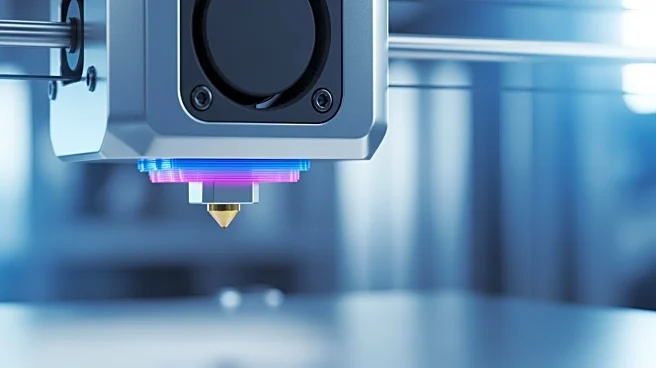What's Happening?
Small and medium-sized enterprise (SME) manufacturers recently gathered at the Made Smarter showcase to explore advancements in 3D printing technology. This event highlighted how 3D printing is driving
innovation across various industries in the UK. The showcase provided a platform for manufacturers to discuss the potential of 3D printing in enhancing production processes and creating new opportunities for growth. The event underscored the importance of adopting cutting-edge technologies to remain competitive in the global market.
Why It's Important?
The integration of 3D printing technology in manufacturing is crucial for increasing efficiency and reducing production costs. By adopting these innovations, manufacturers can streamline operations and improve product quality. This technological advancement is particularly significant for SMEs, which often face resource constraints. The showcase emphasized the role of 3D printing in fostering innovation and competitiveness, which is vital for sustaining economic growth and maintaining a strong manufacturing sector. As industries continue to evolve, embracing new technologies like 3D printing will be essential for staying ahead in the market.
What's Next?
Manufacturers are expected to continue exploring the applications of 3D printing in their operations. The insights gained from the Made Smarter showcase may lead to increased investment in 3D printing technologies and collaborations among industry players. As manufacturers seek to enhance their capabilities, there may be further developments in the integration of 3D printing with other advanced technologies, such as artificial intelligence and robotics. These advancements could pave the way for more efficient and sustainable manufacturing practices.
Beyond the Headlines
The adoption of 3D printing technology also raises questions about the future workforce in manufacturing. As automation and advanced technologies become more prevalent, there may be a shift in the skills required for manufacturing jobs. This could lead to a demand for workers with expertise in technology and engineering, prompting educational institutions to adapt their curricula to meet industry needs. Additionally, the environmental impact of 3D printing, such as reduced waste and energy consumption, could contribute to more sustainable manufacturing practices.









